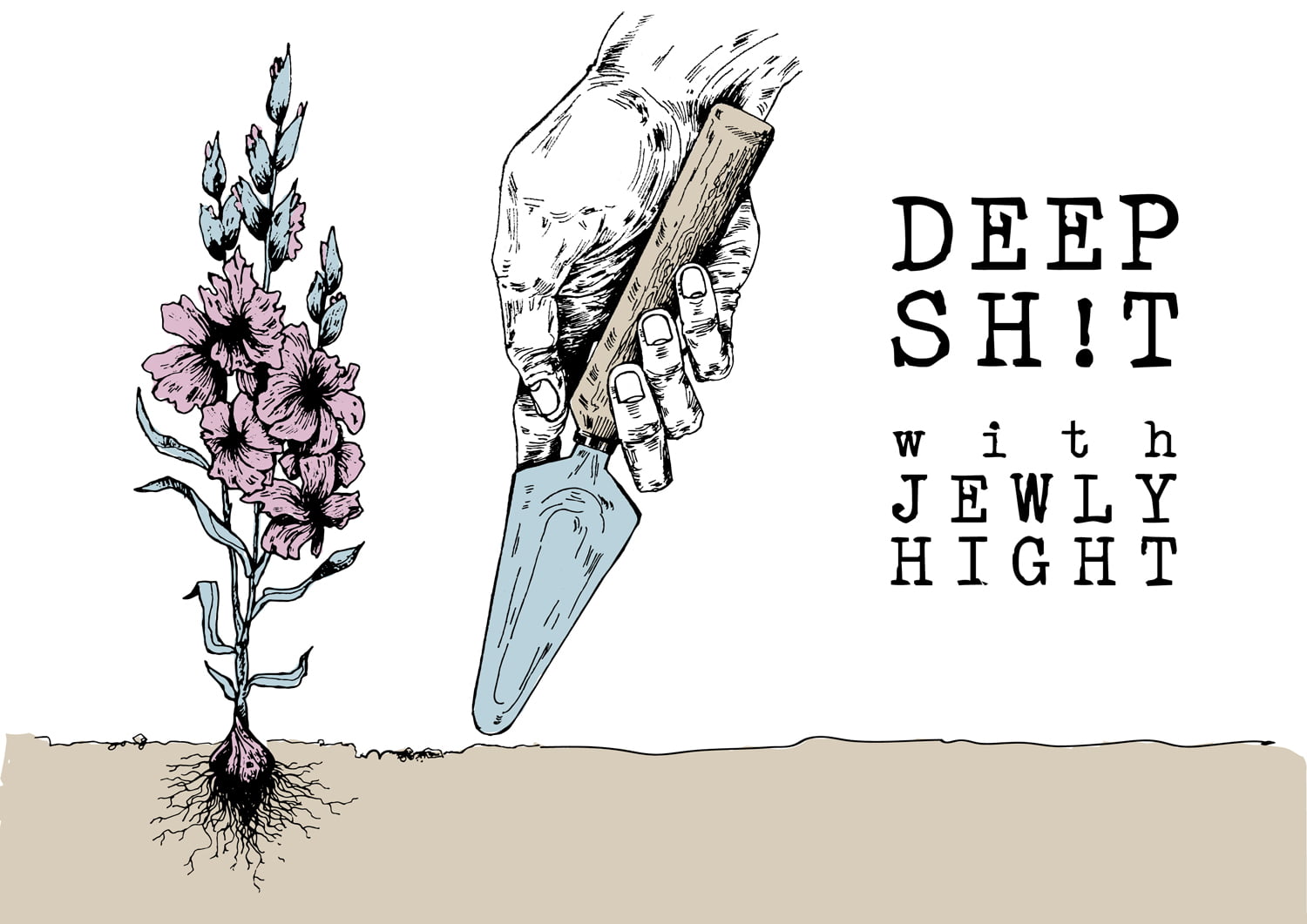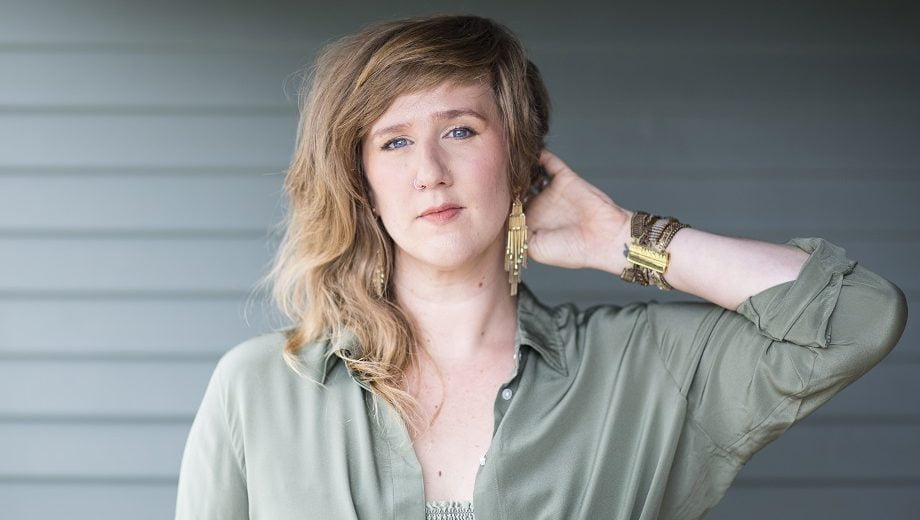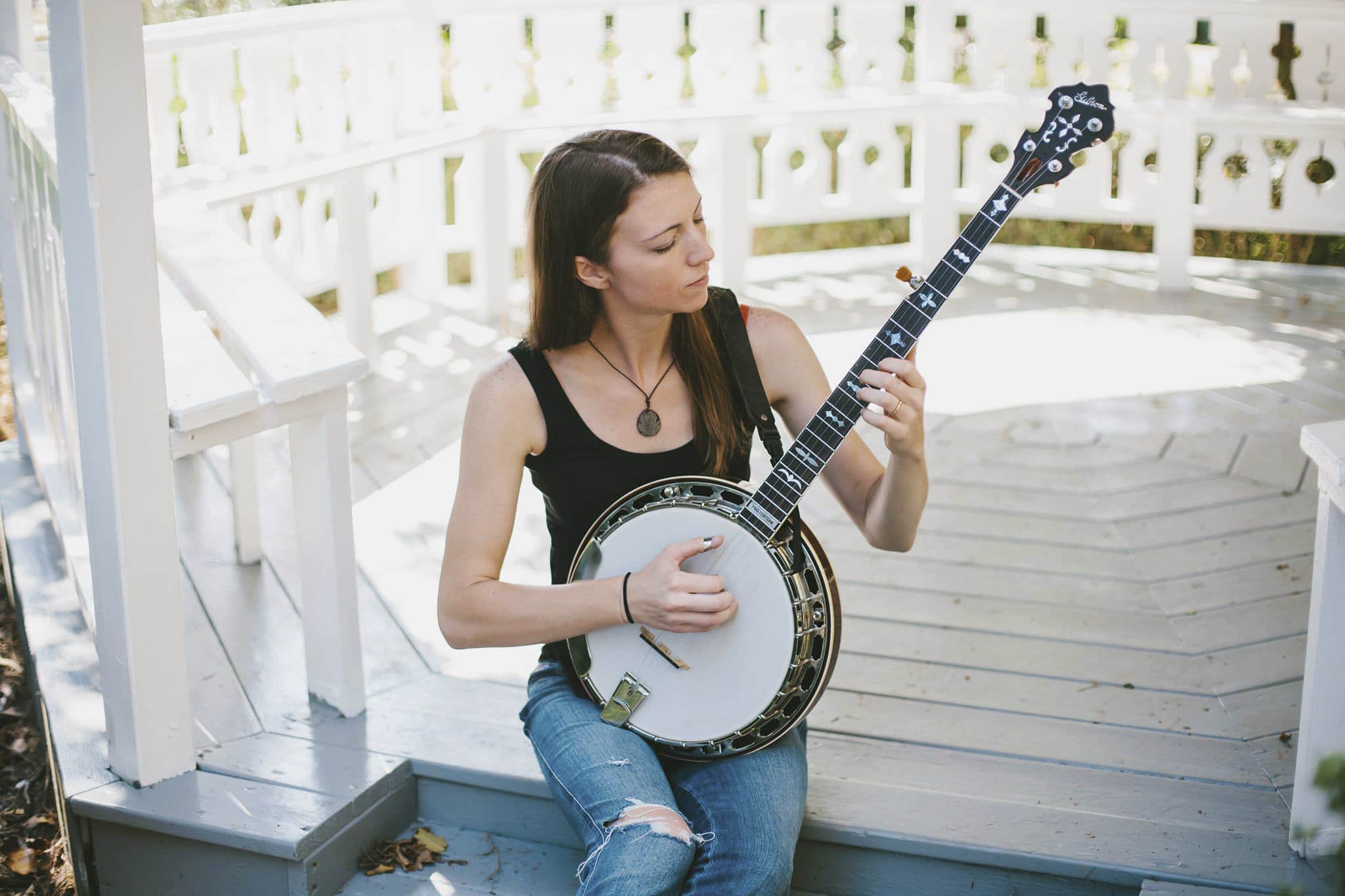On paper, the concepts behind new projects by Carrie Rodriguez and Paul Burch might sound a bit formalistic — hers, a cross-cultural translation of generations-old Mexican ranchera songs and appreciation of her great-aunt Eva Garza’s overlooked recordings; his, a fictionalized musical memoir of pre-electrified pop star Jimmie Rodgers detailing, among other things, Rodgers's final, tuberculosis-hobbled trip to record in New York City. But, in reality, Rodriguez’s Lola and Burch’s Meridian Rising are truly dynamic albums, animated by the imaginative work of Rodriguez and Burch mastering nuances of musical style and cultural context, then allowing themselves ample room to play.
The seeds of both song cycles were planted years ago. Early in her fiddle-playing career, before she’d established herself as a duet partner to Chip Taylor or ventured out as a solo singer/songwriter, Rodriguez received a package of CDs burned from her great-aunt’s hard-to-find vinyl records and found herself transfixed. As for Burch, one of the driving forces behind a vintage country revival that overtook Nashville honky-tonks two decades ago and a standard-setter for roots smarts ever since, he was quite taken, too, when he came across an obscure recording of Rodgers and blues guitarist Clifford Gibson.
Have you two crossed paths before?
Paul Burch: Well, we actually did a long time ago. I think I opened for you, or we played a double show, at the Borderline.
Carrie Rodriguez: Yeah! With Chip [Taylor], right?
PB: Yes. Ages ago.
CR: I do remember that.
So you’re talking a number of years ago.
PB: Yeah. I’d say 10 or more. Does that sound right?
CR: Uh huh. Yeah. Because I was playing with Chip in my early 20s up through maybe 2006 or something. So it had to be before that. Whoa. Old.
PB. No, no. You’re not old.
It occurred to me that it might not seem immediately clear why I’d want you two to get on the phone together.
[Both laugh]
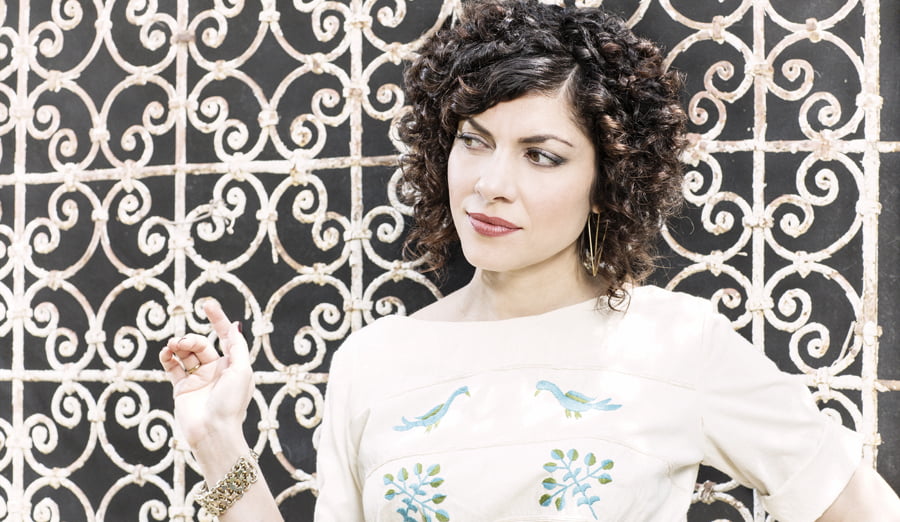
From my perspective, you’ve both released remarkable new albums that conjure long-gone musical figures in fascinating ways, but your approaches to doing that are very different. I thought it would be illuminating to put your ideas in conversation.
CR: Okay.
PB: I love it.
You both work in contemporary roots music, which often gestures backward in very general ways. But, with these projects, you’ve each brought such specificity to the act of engaging the past. Did you think of what you were doing as upping the ante?
PB: Hmmm. I’ll let you go first, Carrie. Ha!
CR: [Laughs] I was really hoping you’d go first!
PB: Okay, alright, alright. I’ll go first. For me, I don’t think of what I’m doing as reviving anything, or even revisiting anything old, because it all feels contemporary to me as long as it speaks to me. And I don’t mean that defensively at all. I think that’s part of my sort of cuckoo clock sense of time. I understand that it can be seen as old or revisiting an old style.
The record that you’re talking about is based on the life of Jimmie Rodgers. So I thought, “Why not fill the songs with the sounds of his contemporary life?” which is everything from the Mississippi Sheiks, which was the African-American fiddle group, to early Duke Ellington or early songs of Hoagy Carmichael. But to me, that was fun. Because as much as I love the Mississippi Sheiks, I had never sat down to try to write something with their rhythm and chord changes in mind. Hoagy Carmichael and Johnny Mercer and those guys, they all had a real interesting way of writing melodies, you know? And as much as I like it, I had never thought [of trying it]. This album, though, sort of gave me license to stay in that world; whereas, typically, when I wrote songs, I don’t know where the inspiration’s gonna come from. You know, I can be in a great mood and I’ll write a bunch of dark things.
Typically, when I go into the studio, as much as I love a lot of old music, I want what everybody wants — I want to make something that’s loud and energetic and all that kind of stuff. I guessed it upped the ante for me. … In a way it was kind of harder. Previous times, when I’ve written, I’ve tried to be sneaky. I’ve tried to be contemporary but find a way to put something in it that was part of my personal roots. And this was kind of the opposite. Even though this record has a lot of nods to older music, it ended up sounding kind of contemporary. I don’t know how that happened.
CR: I like this. This is a lot more interesting than doing an interview one-on-one. Getting to hear another artist answer a question, that’s really fun.
It’s been such a journey making this record. I mean, my initial idea was that I wanted to take a group of Mexican songs — ranchera songs, classic songs — and reinvent them for my time, for my era of music, for my tastes. I wanted a mariachi band that was not your typical mariachi band. So I thought [revered jazz guitarist] Bill Frisell was a great guitar player for the project. I put together this band, and that was the initial idea. But, as I started researching my favorite songwriters from the ‘40s, ‘50s, ‘60s — Mexican songwriters — and learning songs, I became so inspired to write, that the album ended up being half classic ranchera tunes, half originals. And the originals mostly came out in Spanglish.
PB: [Laughs]
CR: Not really on purpose. That’s just how they came out. So I think my original idea was that it was going to be kind of an album of classic music reinvented a little bit, but in the end, I don’t know. I think it is something new. Even the classic ranchera tunes … I mean, with the band we put together, they’re pretty different than any versions I’ve ever heard of them.
PB: I think it’s great that you chose Bill, because I think of him as being the kind of guitarist who would love to learn something, if he didn’t already learn it as it was written. But then his natural inclination as a songwriter and arranger would be to accent things that appealed to him. Was that sort of how it worked out with him?
CR: Yeah, in some ways. I didn’t wanna send anybody in the band too much advance music. I think I sent a few tracks by my great-aunt, Eva Garza. Part of the initial inspiration for this project was my great-aunt and her music. She started recording in the late 1930s. So I wanted them to hear her music, but I didn’t want to send the band too much, because I wanted them to hear these songs for the first time in the way that I was bringing [the material] to them. So for example, Luke and I — Luke Jacobs is my partner. Well, I call him my husband. We’re not married, but he’s like my husband. Musical partner, as well. We came up with sort of the grooves and feels for all of these ranchera tunes. And they are very different. But those are the only demos I sent to the band. … I wanted these tunes to be fresh, for the most part. We did an instrumental of a Cuco Sanchez song called “Si No Te Vas,” and I think I did send maybe my favorite version — which was Chavela Vargas singing that song — to Bill, but that one was an instrumental. So I knew he would listen to the way that [Vargas] sang it. He often will take a melody that’s sung and transcribe the whole thing and be able to play the melody exactly the way someone sang it. And then, of course, from there, he turns it into his own odyssey.
PB: [Laughs] I had a similar experience in that the group of musicians I used I’ve worked with for a long time, but not all of them are that well-versed in, say, the era of blues and the era of jazz that Jimmie Rodgers was working in, which was nice because they just heard it as music. Their reference was rhythm. Also, another nice thing about working that way was that we didn’t have any contemporary rock ‘n’ roll sounds that we could lean on. If we’re recording a kind of contemporary record, whatever records have been in circulation over the last few years, it’s gonna show up a little bit, no matter how hard you try — unless you play with musicians that are kind of out of the western world.
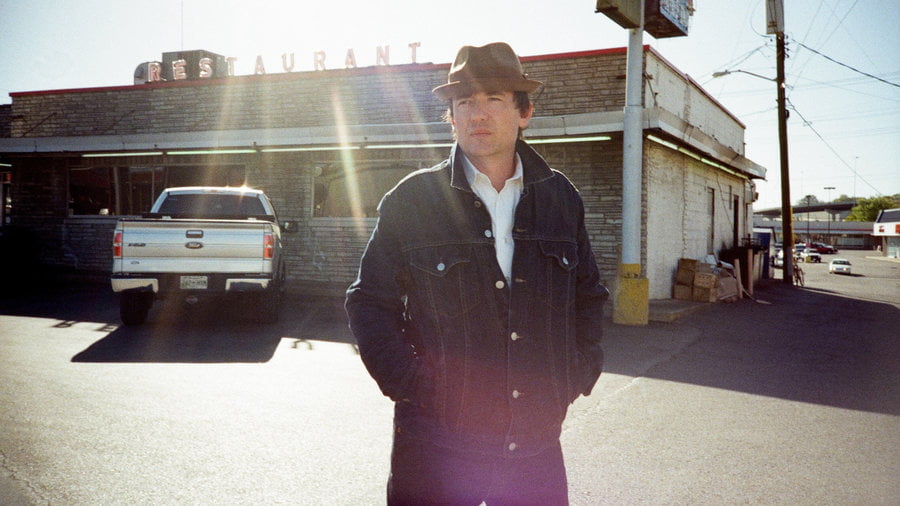
Carrie, you mentioned your great-aunt, Eva Garza. You recorded a song for the album that she’d recorded and you also have some originals depicting both the atmosphere that she recorded in and what it’s like for you now on the road. I hear you drawing connections between her experiences and your own as a professional performer and Latina woman. Do you feel like you’re staking your claim to a personal and musical heritage?
CR: Hmmm. That’s a nice way of putting it. I do really feel like this record is maybe more representative of me than anything I’ve done before. I never thought about it that much, but being a Chicana fiddle player is still a little unusual in this country. I don’t know how many there are of us. But thinking about my great-aunt’s music and my heritage got me thinking about my place in the Americana music scene. Really, there aren’t that many Latinas in that scene yet. I mean, there are a few. It definitely made me think about that being a unique part of who I am. Just, for example, with the sound of the record, I didn’t want to shy away from it sounding like country music, because that’s such a part of me, even when I’m singing the songs in Spanish. We had pedal steel all over the ranchera tunes. I do feel like it’s very representative of me in a whole way, whereas my records in the past, of course they’re often very autobiographical, but there was this one element that was maybe missing. And I think singing in Spanish, too, just naturally helps bring that to the surface. That’s the language of half my family.
And it’s something that’s you’ve very gradually woven into your live shows leading up to this point, right?
CR: Yeah. I was pretty chicken to make a whole album in Spanish. I thought about it for a long time. Frankly, I don’t think I was ready to record much in Spanish until now. It’s better if you’ve lived a few years and had some serious heartache, I think. It’s better for singing ranchera.
While Carrie has a strong personal and cultural connection to these songs, Paul, it occurs to me that your connection to Jimmie Rodgers is also about musical identity, but in a different way. You’ve talked about your fascination with how Jimmie Rodgers fashioned himself into a popular entertainer using any kind of music that struck his fancy. What is attractive to you about that?
PB: I think one element of it is that I’ve never felt like what small abilities I have are the kind of things that … my sense of music, I feel very confident about, but I’m not the kind of singer that will stop people in their tracks with anything that I sing. And I’m not such a superlative guitar player — or the other instruments that I play — that I can make an impactful entertainment kind of impression on people. So I think I’ve had to kind of make a personal style.
First, I find something I love and I think that I can sing. But I also have to sort of find a way to sing it, because many of the singers I admire, I don’t have the voice that they do. … In a way, that’s been helpful, because I haven’t felt like I had to be one kind of a singer. I know not everyone will like what I do, but I’d like to give everyone the chance to like it. So many of the performers I liked growing up, they played every kind of music. Jimmie has never been my number one person I’ve listened to, but it’s a very usable kind of model because he was very generous with the musicians he played with. He’d see people on the street. He’d meet people in the studio. And he would say, “Come record with me.” That’s a really healthy thing to do as a musician. A lot of musicians find it really hard to gather a combination of friends and strangers in the studio to make something. They either keep it kind of impersonal, or they keep it with the same crew. Neither of those situations are always ideal. Jimmie seemed to be someone who, he liked his own work. … In the same way that Louis Armstrong seemed to be a very generous musician, [Jimmie] loved to play. I relate to that. For all my many shortcomings as a musician, I always want to get better, and I think the only way to do that is to reach out to people you admire and say, “I love what you do. Could you come? I think you would be perfect to help me make this song really good.” I don’t know if that shows up in the record, but that’s the feeling that I was trying to imbue Jimmie with.
Carrie, you mentioned your awareness that you’re one of the few Chicana performers in the Americana scene. And Paul, you’re zeroing in on how Jimmie Rodgers was way more interested in incorporating an array of popular, current sounds than much of Americana is now. I could see both of your projects making people think a little differently about what’s possible in contemporary roots music — what it looks, sounds, and feels like. Are you finding that to be the case?
CR: I sure hope so.
PB: I hope millions and millions feel that way.
[Both laugh]
CR: Young ones that’ll keep coming to shows for a long time.
PB: Right.
CR: I wrote that song “Z” as a song for young women, honestly. I mean, it’s my story and it talks about being a Chicana fiddle player. The chorus is about showing up to a gig and my name is misspelled on the marquee, which has happened. And, you know, “Rodriguez” is kind of like the “Smith” of Mexicans; it’s pretty common. So it felt pretty good to tell country music where to put the Z. But honestly I’m waiting for the next big Latina — well, I haven’t seen one. I’m waiting for that Latina country superstar. I haven’t seen her. Where is she? Because, if you look at the demographics of our country, I just can’t believe that country music doesn’t have one yet. It doesn’t make any sense to me. So I was hoping with this song I might inspire some young girls to get into songwriting or whatever.
Paul, how about your tendency to take a little more stylistically promiscuous approach to roots music?
PB: Well, that’s Jimmie Rodgers in a nutshell. I don’t think I’ve ever heard it described that way, but that’s a beautiful description. I hope people think so. What I’ve most enjoyed now that I’ve performed these songs live is that they become contemporary feeling very easily. … When your ammunition is a song, you’re asking a lot of that song to really get through to people. When you’re telling a story, there’s always the chance that it could just get swallowed up. Luckily, these songs are not typically narrative. I tried to give them what Jimmie does, which is a sense of conversation, telling a story in a way that is a little bit cut off sometimes, is clipped, where you have to suggest intention without words somehow, almost in the rhythm and the beat.
It seems to be working. People seem to like it. I’m a very practical guy. If people like it, that makes me happy. Of course, I have high expectations, but I’m also glad to have music that I want to play that just seems different to me. … It doesn’t feel as conventional a rocker as I’ve written before or a ballad where there’s kind of a lot of signposts that people might recognize. This doesn’t feel like that. Hopefully, it’s new to the audience and it’s still new to me, too.
It says something about the audiences you’ve both built over the years that they respond to albums with some pretty involved musical concepts.
PB: I hope so. Whoever they are, bless their hearts.
CR: So far, so good.
PB: There was one part of me thinking that there could be no less commercial thing for me to do than to make a record about Jimmie Rodgers. It was so uncommercial and so not the kind of thing that anybody wanted to sell that it seemed to come completely around to the kind of thing that might work. I think the punk rocker in me just kind of enjoyed doing something so different, even if it didn’t work.
It’s so punk of you.
PB: Yeah, that’s me. Mr. Punk.
Thanks very much to both of you for being up for this.
PB: Oh, thank you! I can’t wait to hear your record, Carrie. It’s lovely to talk to you again.
CR: Yeah. Ditto, Paul. I’m gonna have to get online and get that record as soon as I get home. Now I’m completely curious and fascinated.
Illustration by Abby McMillen. Carrie Rodriguez photo courtesy of the artist. Paul Burch photo by Emily Beaver.
